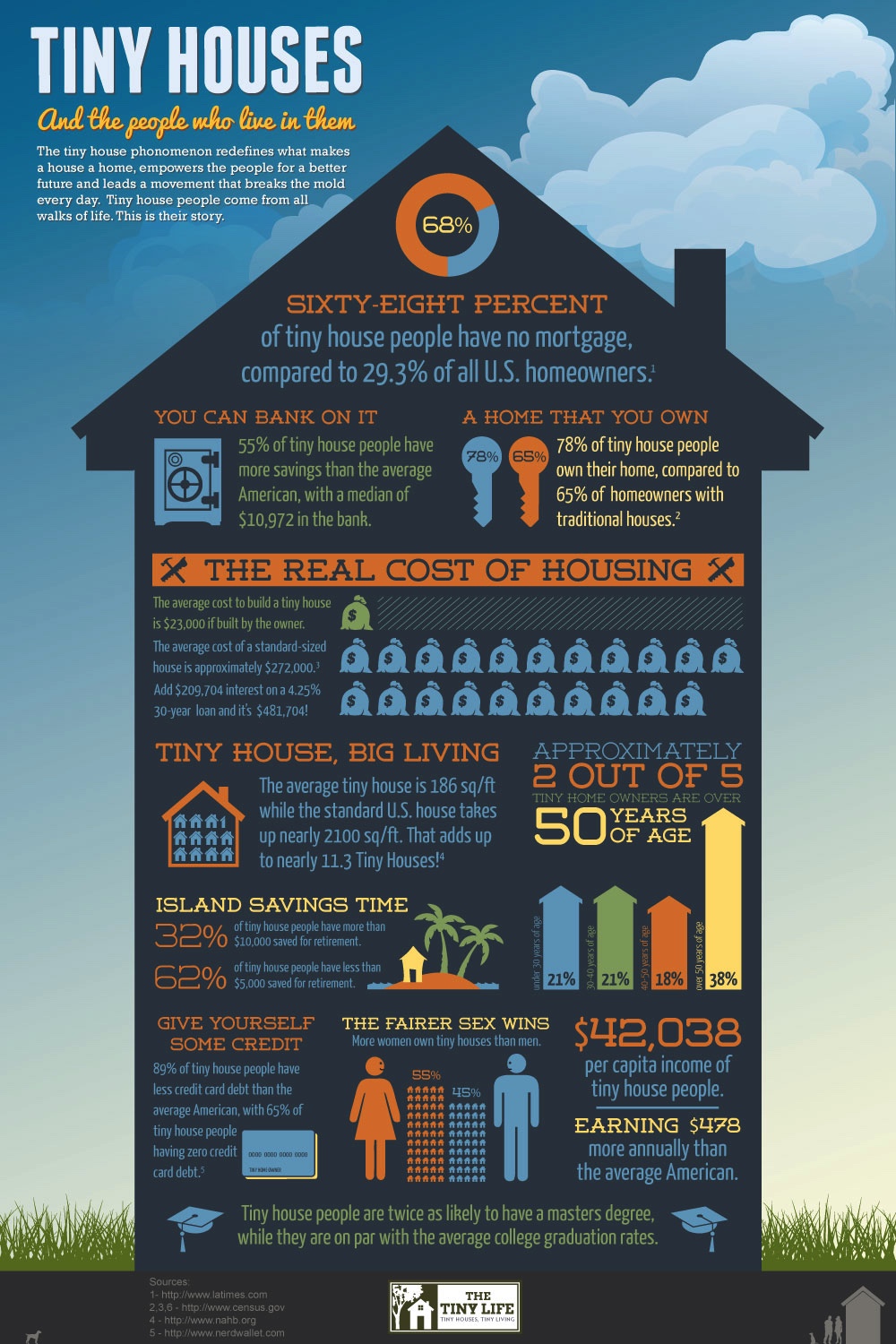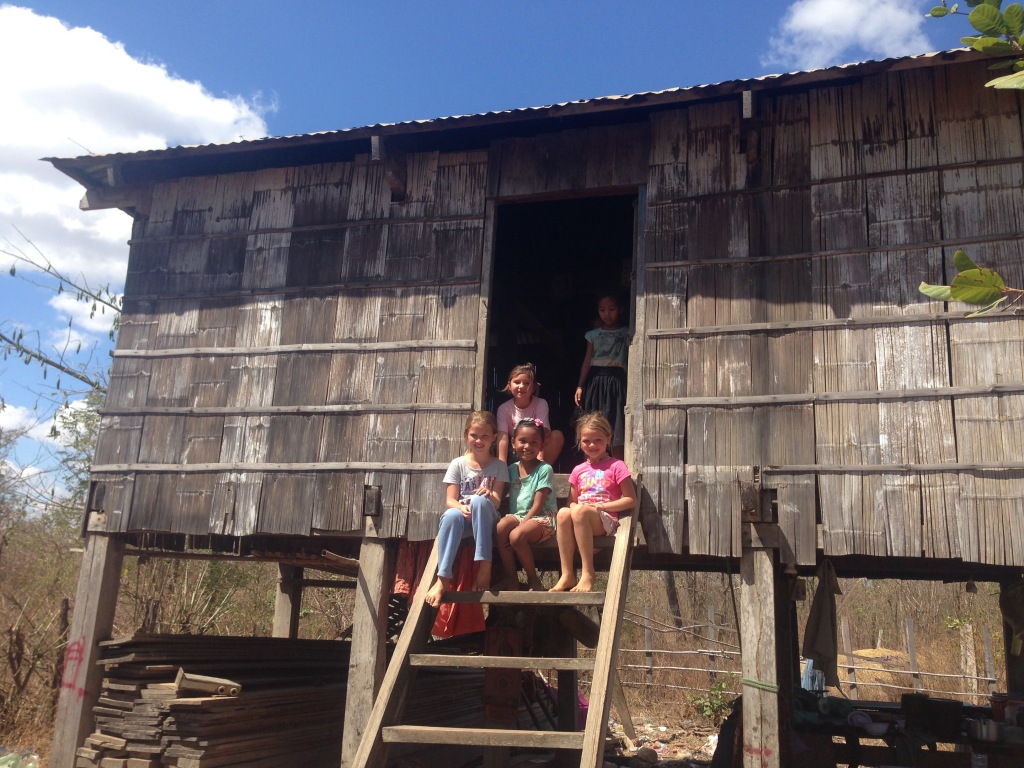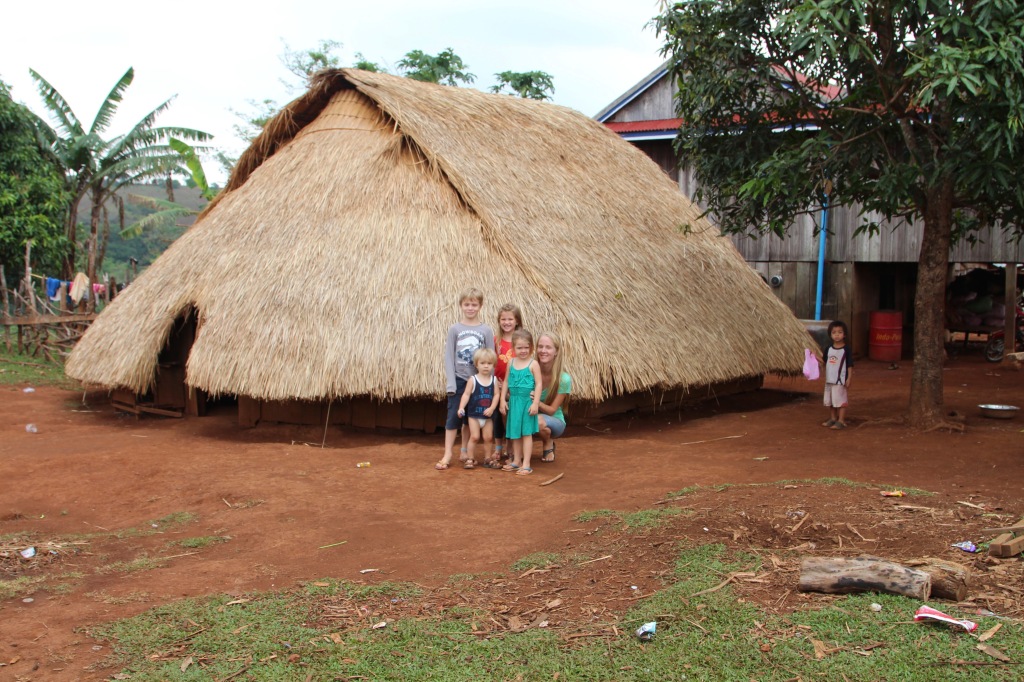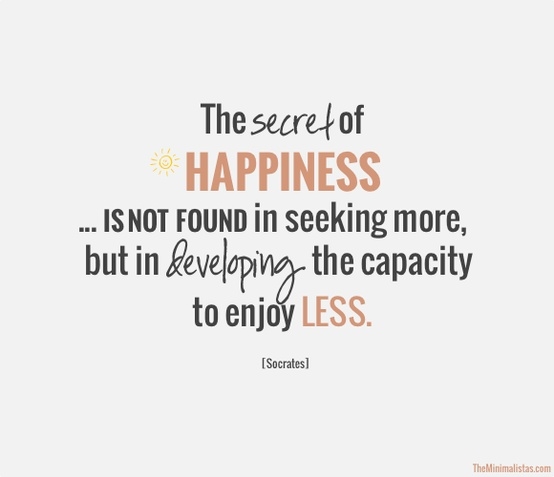A Coffee with Friends
Because life is a journey and we all need a friend.
Living In Small Spaces: An International Perspective

The tiny house movement is sweeping across the western world today. This growing movement has international attention on CNN, AP, Guardian, Huffington Post, NBC, Oprah, and PBS. In pursuit of minimalism, financial freedom, help the environment, or freedom from guilt many middle class and rich alike are choosing to live in small spaces. But, this is not a novel idea as Asian cities have experienced this for centuries. Glance at these 3 experiences and you decide. Are there advantages to living minimally, in tiny spaces?
United States Tiny House Perspective (provided by www.thetinylife.com)

Our Personal Experience Living In A Small Space for a Week in Paris:
For just a week, my family of 6 lived in a one room apartment with 1 bed. We actually all enjoyed this experiment of living in a small space. The advantages were that socially, we had more interaction and were more aware of each others activities on devices and such. Disadvantages include feeling chaotic in that there was not enough room to store our few belongings and to be honest, we got on each others nerves!:)
Asian Perspective:

Meet our friend Challee. She is Khmer lives in rural East Cambodia near Vietnam. Her family works 7 days a week in the rice fields. She lives in this one room house with about 10 people. There are no bathrooms in her village. We interviewed Challee and asked her to share her feelings about living in a small home. Here is her reply: “There is safety being together. I feel sorry for families who are separated and I can’t imagine what it would be like to sleep in a room away from family.” When asked if she desired a large home, she says “yes, but I would still want my family to sleep and eat in one room!”

The house pictured above is in the mountains on the Vietnam border. This is a Bunong hill tribe home. The family of 15 live in this one room home, sleep on a long wooden table, and cook in the center with no bathroom to use. When talking with Bunong about their living conditions, they too seem to prefer the closeness of family mentioning fear and lack of security as motives for staying in one room together. Many of these people fear being sick or dying and being alone.
There are 3 advantages of living small that can be seen in each location :
- Intimacy
- Security
- Sharing of Resources
Throughout the wealthy countries of the world, minimalism is a popular concept which does have good scientific backing. Why go minimal? You and I know that the more money we make and the belongings we own have little to do with happiness. But, you can take it even further.
The more we give away, the happier we are.
The less we keep, the more joyful we’ll be.
If you need more evidence, check out this article written by The Minimalists: http://www.theminimalists.com/scientific/

“One gives freely, yet grows all the richer; another withholds what he should give, and only suffers want.” Proverbs 11:24
Share your experiences here! Do you agree that minimalism brings more happiness? What steps towards minimalism have you taken or want to take?

Interesting article. I think it’s probably going to become an increasing trend with more elderly people around who have reduced pensions, or no pension in the case of independents like me. I think the small environmental footprints of small houses are also a major argument in favour of them.
LikeLiked by 1 person
I think your right. It is a smart move for those who don’t need a lot of space and much better for the environment. Personally I have experienced that the bigger and more I own, the more stress I have.
LikeLiked by 1 person
Absolutely. I’m reading a fascinating book at the moment about how early Homo sapiens moved from being a forager to a farmer, 10,000 years ago or so, and even then that change was associated with stress of having more tools, animals, buildings, storage space etc etc.
LikeLike
I have to say that I’ve moved back to a middle ground in terms of space. We moved from a larger family home to a very small apartment and initially loved the minimalism and the simplicity. Over time, though, I missed having some of the things that made my life more enjoyable – space to make food for company (and serve it!), the ability to find a quiet spot of my own, etc. After 12 months in that small space, we have just moved out (3 days ago!) and are a week away from moving into a happy medium kind of place – more urban and smaller than our last house, but with a little more space to spread out in than the apartment. We’ll see how this one goes!
LikeLiked by 1 person
Me too!! 😉😀 I totally respect those who can do it but t I also love to entertain others and have kid run around space. It’s not for everybody! Thanks for stopping by!
LikeLiked by 1 person
My sister and I have dreamed about living in a tiny house!!
LikeLiked by 1 person
Do it!!
LikeLike
“There is safety being together.” There’s so much truth in these words, and a good reason why some Asian families are all for being cramped living in close quarters. Making the most of every inch of space is also a way to see it, and very economical too.
LikeLiked by 1 person
Very true! Thank you for stopping by.
LikeLiked by 1 person
This is so cool! I should know all about giving I’m originally from Shanghai where I lived with my parents and grandparents in a 40sqm 2 bed apartment (which was considered big!). Now that I’m in Australia I can’t imagine how people can live on top of each other like that! And the sleeping capsules in Japan… Totally fascinating.
LikeLiked by 1 person
Truly fascinating! Thank you for stopping by and would you consider writing a blog about living in your small space in Shanghai. I know lots of people would be interested in your story!
LikeLiked by 1 person
Haha thanks. I got so many topics twirling around in my head and so little time to put pen to paper. I’ll note that one down 🙂
LikeLiked by 1 person
Thanks for liking my post on minimalism, which consequently led me to this wonderful post! So in a way, you kind of already know my answer to your question at the end. I think having less generally means less stress, as long as your family’s basic needs are met. Simplifying and purchasing wisely are both great. However, what’s interesting about western minimalism (in my limited knowledge) is that it demonstrates minimalism on it’s own doesn’t produce humility. I’m definitely not the first to poke fun at the smug-nature of certain minimalists. I think minimalism results in happiness when it leads to 1) contentment (Phil. 4:11-13) and 2) living life with purpose. By that second point I mean, realizing that life is more than material wealth, and yet, being a good steward of what you do have can be liberating.
LikeLiked by 1 person
You are wise! You see through the Minimalism hype and into the heart of the people on board. I look forward to reading more of your posts! Thank you for heading my way.
LikeLiked by 1 person
Thanks! Same to you 🙂
LikeLiked by 1 person
Love the message here! I’m trying to cut down on my possessions, too!
LikeLike
I have often advised people on my blog is that, what is common place in the so-called Western world, is not to e found in the developing world. And if so, only in the Capitals. I can remember visiting the third largest city in the Philippine, about 1972, a family of 12 had an old Coldspot (Sears) refrigerator, almost identical to what my family of four had, in New Jersey, in 1050.
Potable water? That’s the horror of the western producers of baby’s formula emphasizing it need to people in very primitive regions. Formula made with muddy and polluted water causes more harm than good. Even a severely malnourished mother’s milk is sufficient for an infant, for the first six m months, according to WHO.
Some years ago, my wife and I spent a weekend at “The Barbican”, in Manhattan, and found what small is. The hotel, with its small rooms, little closets, had history. Single budding actresses has lived there back in the 1930.
To an extent, when we see how little people make do with, we can empathize; but, we should also realize how wasted much of what we use–or don’t even use–takes from the environment.
Different TVs for each family member. Now, what does that bred: Narcissism (my own TV to control); divisiveness; wastefulness in electric bill. Just multiple that with running water in sink before or after needed. Running half-empty dishwasher. Excess opening and closing refrigerator. Having your car running while you are finishing getting ready.
Some American Exceptualism!
LikeLiked by 1 person
I think you and I both see that the direction were heading isn’t helping us or anyone else. What we don’t understand is that the more convenience and space we need, the more we take and are less able to give back to this world! Thank you for taking the time to comment here. You are always welcome back.
LikeLike
If I only I could find a “village” of tiny houses. That would be neat. And now I’m just thinking about the M. Night Shyamalan film… *sees red* and chants: “The bad color.”
On a more serious note, I can definitely see this sort of sustainable living becoming the norm in the future, unless, of course, we colonize Mars before we overpopulated this planet!
LikeLiked by 1 person
😂😂Mars sounds good! Thanks for stopping by!
LikeLiked by 1 person
Awesome post! Love this idea. Minimal and sustainable! I used to dream to live in a big luxurious house but ever since I embraced minimalism, I just want a comfortable home, doesn’t need to be big but just enough for my family. We should embrace the idea to live just what we needed because happiness lies in our gratitude and contentment in life. Not a big house.
I blog about my minimalism journey too, here: https://rachelhayashiaki.wordpress.com/
LikeLiked by 1 person
So true! Love it. It’s hard to purge my life of the things I wasted money on and changing habits but, I found the more I have purged the better I feel. I feel free of clutter and crap I hardly ever used. I started replacing my disposable items with reusable and started saving time and money that way too, along with improving my health. I love this movement here and way of life elsewhere. Thanks for sharing!
LikeLiked by 1 person